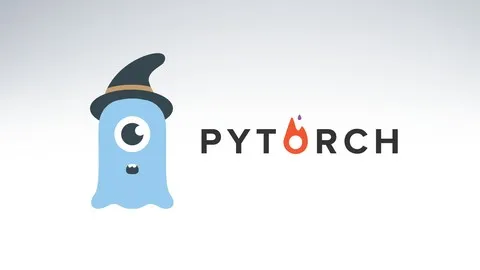
Child Nutrition and Cooking 
This course provides an overview of child nutrition and cooking, exploring the risks of obesity in childhood and how to prepare nutritious meals. Participants will gain an understanding of what constitutes a healthy diet for children and adults, and learn how to inspire a lifelong appreciation of home-cooked meals. This course equips participants with the knowledge to be the leading health providers, teachers and parents of the present and future. ▼
ADVERTISEMENT
Course Feature
![]() Cost:
Cost:
Free
![]() Provider:
Provider:
Coursera
![]() Certificate:
Certificate:
Paid Certification
![]() Language:
Language:
English
![]() Start Date:
Start Date:
18th Sep, 2023
Course Overview
❗The content presented here is sourced directly from Coursera platform. For comprehensive course details, including enrollment information, simply click on the 'Go to class' link on our website.
Updated in [March 06th, 2023]
This course, Child Nutrition and Cooking, provides an overview of the importance of nutrition for children and adults. It examines the impact of the changing culture of eating on our dietary intake, and the health risks associated with obesity in childhood. Participants will learn what constitutes a healthy diet for children and adults, and how to prepare simple, delicious meals that will inspire a lifelong celebration of easy home-cooked meals.
The course begins with an introduction to the basics of nutrition, including the importance of a balanced diet and the role of vitamins and minerals. It then moves on to discuss the impact of processed foods on our diets, and the health risks associated with obesity in childhood. The course also covers the importance of physical activity and the role of parents in promoting healthy eating habits.
Participants will learn how to create nutritious meals for children and adults, and how to make healthy snacks. They will also learn how to read food labels and understand the nutritional content of food. The course will also cover the importance of meal planning and how to create a balanced meal plan.
Finally, the course will discuss the importance of teaching children about nutrition and how to make healthy food choices. Participants will learn how to create a positive environment for children to learn about nutrition and how to make healthy food choices.
By the end of the course, participants will have a better understanding of the importance of nutrition for children and adults, and how to create nutritious meals and snacks. They will also have the knowledge and skills to help children make healthy food choices and to create a positive environment for learning about nutrition.
[Applications]
Participants of this course can apply their knowledge to their own families by creating healthy meals for their children. They can also use their newfound knowledge to educate others on the importance of healthy eating habits and the risks associated with obesity in childhood. Additionally, participants can use the skills they have learned to become health providers, teachers, and parents who are better equipped to provide nutritious meals for their families.
[Career Paths]
1. Child Nutritionist: Child nutritionists are responsible for helping children and their families make healthy food choices. They provide nutrition education, develop meal plans, and monitor the health of children. They also work with schools and other organizations to create healthy eating environments. As the prevalence of childhood obesity continues to rise, the demand for child nutritionists is expected to increase.
2. Food Scientist: Food scientists are responsible for researching, developing, and improving food products. They work with food manufacturers to develop new products, improve existing products, and ensure that food products meet safety and quality standards. As the demand for healthier food products increases, food scientists will be needed to develop new products that meet these demands.
3. Dietitian: Dietitians are responsible for helping individuals make healthy food choices. They provide nutrition education, develop meal plans, and monitor the health of individuals. As the prevalence of chronic diseases continues to rise, the demand for dietitians is expected to increase.
4. Food Educator: Food educators are responsible for teaching individuals about healthy eating habits. They provide nutrition education, develop meal plans, and monitor the health of individuals. As the demand for healthier food choices increases, food educators will be needed to help individuals make informed decisions about their diets.
[Education Paths]
1. Bachelor of Science in Nutrition: A Bachelor of Science in Nutrition is a four-year degree program that focuses on the science of nutrition and its impact on health. Students learn about the role of nutrition in the body, the effects of different foods on the body, and the importance of a balanced diet. They also learn about the role of nutrition in disease prevention and management. This degree is becoming increasingly popular as more people become aware of the importance of nutrition in maintaining health.
2. Master of Science in Nutrition: A Master of Science in Nutrition is a two-year degree program that focuses on the advanced study of nutrition and its impact on health. Students learn about the role of nutrition in the body, the effects of different foods on the body, and the importance of a balanced diet. They also learn about the role of nutrition in disease prevention and management. This degree is becoming increasingly popular as more people become aware of the importance of nutrition in maintaining health.
3. Doctor of Philosophy in Nutrition: A Doctor of Philosophy in Nutrition is a four-year degree program that focuses on the advanced study of nutrition and its impact on health. Students learn about the role of nutrition in the body, the effects of different foods on the body, and the importance of a balanced diet. They also learn about the role of nutrition in disease prevention and management. This degree is becoming increasingly popular as more people become aware of the importance of nutrition in maintaining health.
4. Master of Public Health in Nutrition: A Master of Public Health in Nutrition is a two-year degree program that focuses on the application of nutrition science to public health. Students learn about the role of nutrition in the body, the effects of different foods on the body, and the importance of a balanced diet. They also learn about the role of nutrition in disease prevention and management. This degree is becoming increasingly popular as more people become aware of the importance of nutrition in maintaining health.
Pros & Cons

Easy to follow presentation style

Fun and informative

Simple diagrams

Easy to follow recipes

Very friendly course

Wonderful lecturer

Too basic

Not enough scientific content

No lowcost options

Too slow videos

Not enough information

Easy quizzes
Course Provider

Provider Coursera's Stats at AZClass
Discussion and Reviews
0.0 (Based on 0 reviews)
Explore Similar Online Courses

Practical Deep Learning with PyTorch

Natural Language Processing

Python for Informatics: Exploring Information

Social Network Analysis

Introduction to Systematic Review and Meta-Analysis

The Analytics Edge

DCO042 - Python For Informatics

Causal Diagrams: Draw Your Assumptions Before Your Conclusions

Whole genome sequencing of bacterial genomes - tools and applications

Culinary Education 101 - The Cooking Like a Chef Crash Course

Madhur Jaffrey Teaches Indian Cooking

Dominique Crenn Teaches Modern Vegetarian Cooking
 Related Categories
Related Categories
 Popular Providers
Popular Providers
Quiz
 Submitted Sucessfully
Submitted Sucessfully
1. What is the main focus of this course?
2. What is the main goal of this course?
3. What type of material is included in this course?


Start your review of Child Nutrition and Cooking